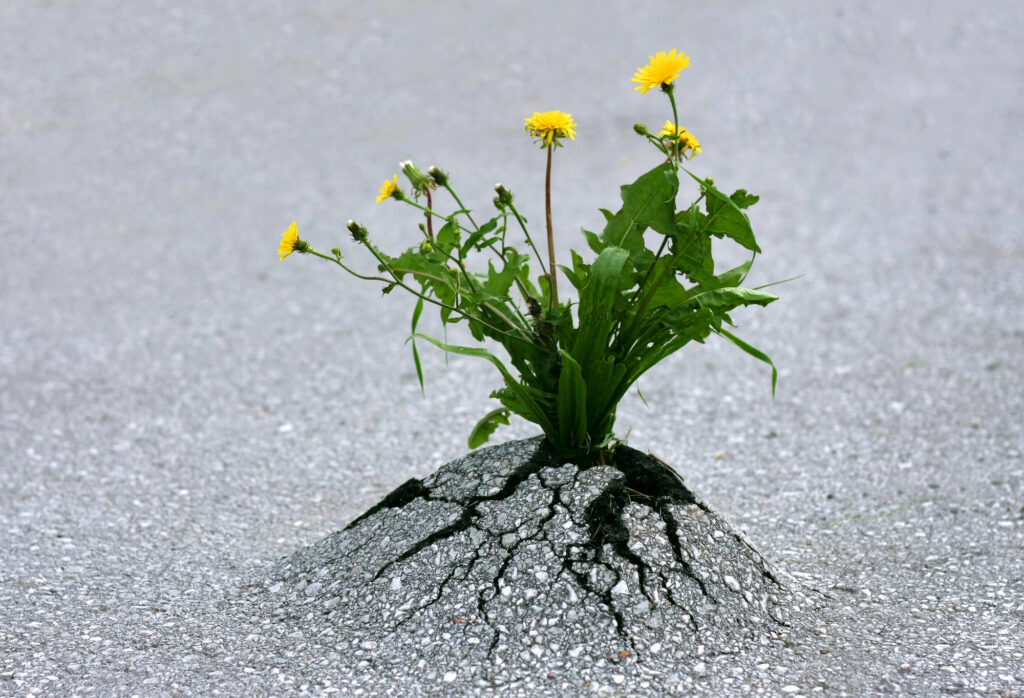EDITOR’S CORNER
As many in the Mad in The Family and Mad in America communities know firsthand, living through trauma and all the challenges and experiences that follow is no small feat. It’s immense. So is supporting someone through such challenges.
Those who make it through—and and talk about it openly, telling their stories in the hopes of helping others—are the absolute embodiment of courage and authenticity.
 On Saturday, May 4, one such group of extraordinary people gathered in a virtual space for an hour and a half of candid, insightful, inspiring, hope-filled conversation. The event, “Part II: Supporting Extreme States, Dissociation, & Experiences Labeled as Psychosis,” was the sequel to an online panel held in March. The follow-up featured the same panelists (Cindy Marty Hadge, Sam Ruck, and Olga Runciman) and the same hosts (Louisa Putnam and Kermit Cole), with an emphasis, this time, on specific ways to to validate someone experiencing such states and assist them compassionately on the way to recovery.
On Saturday, May 4, one such group of extraordinary people gathered in a virtual space for an hour and a half of candid, insightful, inspiring, hope-filled conversation. The event, “Part II: Supporting Extreme States, Dissociation, & Experiences Labeled as Psychosis,” was the sequel to an online panel held in March. The follow-up featured the same panelists (Cindy Marty Hadge, Sam Ruck, and Olga Runciman) and the same hosts (Louisa Putnam and Kermit Cole), with an emphasis, this time, on specific ways to to validate someone experiencing such states and assist them compassionately on the way to recovery.
The entire panel was recorded and is now available for free on YouTube. I urge everyone to watch it.
If you’re supporting a loved one through dissociation, voices, or other states, watch it. If you’re a person with lived experience, watch it. If you’re a mental health clinician, watch it. If you’re familiar with this page, MIA, and the movement challenging the current biomedical paradigm of mental health, watch it.
If you happen to fall into none of those categories—if, say, you stumbled across this page by accident, and even question the wisdom of such critical perspectives and alternate approaches—watch it anyway. Open yourself to the possibility that the usual, drug-heavy, diagnosis-driven, lifelong, locked-in ways of defining and addressing mental and emotional challenges might be wrong. Imagine, for a second, that recovery can happen. Try to view people who live through such states not as broken but as strong. As individuals who’ve endured and are capable of healing.
“On a basic level,” Hadge said at one point during the panel, “if something is radically changing or shifting for somebody. . . be curious about the context of that—versus blaming the person or saying there’s something wrong with them. Maybe something wrong happened to them, and they’re doing their best to navigate it.”
Those two questions—What’s wrong with you? vs. What happened to you?—concisely define the difference between the existing paradigm and the envisioned one. The former pins blame on the person; the latter looks at trauma. I’ve written about this before. Most recently, I wrote about piles of recent research linking negative childhood experiences with varied diagnoses, psychosis included. From a data-driven, science-based standpoint, the happened perspective clearly wins.
And yet, far too often, I come across some snarky remark on social media that aims to dismiss any alternate views of mental health. Each time I do, I think: All this person needs is a seed of information. A glimpse into another realm. Another way of thinking. A window into the rational, research-backed, mindful universe where the harms of the current model are clearly seen and voices of lived experience are clearly heard.
The online panel offered so many glimpses. It planted so many seeds. And with them, it offered hope: living, breathing examples of recovery and loving support. Watch it.
—Amy Biancolli, Family Editor
***
More from Mad in the Family
More Editor’s Corners














